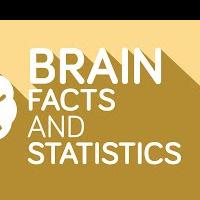Brain Facts and Statistics
Fakten und Statistiken zum Gehirn
Γεγονότα και στατιστικές για τον εγκέφαλο
Brain Facts and Statistics
Datos y estadísticas sobre el cerebro
Faits et statistiques sur le cerveau
Factos e estatísticas sobre o cérebro
大脑事实和统计数据
The brains consist of three parts.
Mozek se skládá ze tří částí.
Los cerebros constan de tres partes.
Il cervello è composto da tre parti.
The forebrain, which controls all thoughts, senses, motor functions, emotions and hunger.
|передний мозг||||||||||
|cerebro anterior||||pensamientos|sentidos|motoras|funciones|||hambre
Přední mozek, který ovládá všechny myšlenky, smysly, motorické funkce, emoce a hlad.
De voorhersenen, die alle gedachten, zintuigen, motorische functies, emoties en honger beheersen.
The midbrain controls auditory and visual reflexes as well as awareness.
|средний мозг||слуховые|||||||осознание
|중뇌||청각|||반사 작용||||
|mesencéfalo||auditivos|||||||conciencia
Střední mozek řídí sluchové a vizuální reflexy i vědomí.
The hindbrain controls coordination and analysis of senses.
|задний мозг||||||
|hindbrain||||||
|후뇌||||||감각
|cerebelo||||||
Zadní mozek řídí koordinaci a analýzu smyslů.
De achterhersenen regelen de coördinatie en analyse van de zintuigen.
Brains have a similar texture to tofu.
Mozky mají podobnou strukturu jako tofu.
Brains have a similar texture to tofu.
I cervelli hanno una consistenza simile al tofu.
There are 100,000 miles of blood vessels within the brain.
V mozku je 100 000 mil krevních cév.
Enough to circle earth four times.
Dost na to, aby obíhali kolem Země čtyřikrát.
Suficiente para dar cuatro vueltas a la tierra.
Basta girare la terra quattro volte.
The ancient Egyptians believed the brain’s function was to produce snot.
||||||||||сопли
|||||||이었다|||콧물
||||||||||moco
Staří Egypťané věřili, že funkcí mozku je produkovat sople.
Though the brain only makes up 2% of the body’s weight, it uses 20% of the body’s energy.
aunque|||||||||||||||
A person’s brain has 100 billion neurons.
|||||신경세포
Mozek člověka má 100 miliard neuronů.
These cells are known as the gray matter which process information.
||||||회색(1)||||
Tyto buňky jsou známé jako šedá hmota, která zpracovává informace.
Einstein’s brains have been preserved for study.
Einsteinovy mozky byly uchovány pro studium.
It is split in to 240 separate slides for viewing.
||||||diapositivas||visualización
Je rozdělena na 240 samostatných snímků pro prohlížení.
Se divide en 240 diapositivas separadas para su visualización.
89.06 is the percentage of people who report normally writing with their right hand, 10.6% with their left and 0.34% with either hand.
89,06 je procento lidí, kteří normálně píší pravou rukou, 10,6% levou rukou a 0,34% oběma rukama.
More electrical impulses are generated in one day by a single human brain than by all the telephones in the world.
|전기적인|전기 신호||||||||||||||||||
Jediný lidský mozek generuje za jeden den více elektrických impulsů než všechny telefony na světě.
After age 30, the brain shrinks a quarter of a percent (0.25%) in mass each year.
||||se encoge|||||||||
Po 30 letech se mozek každý rok zmenšuje o čtvrt procenta (0,25%) hmotnosti.
Men process information primarily from the left side of the brain.
Muži zpracovávají informace primárně z levé strany mozku.
Women tend to use both sides at the same times.
Ženy mají tendenci používat obě strany současně.
The brain can stay alive for 4 to 6 minutes without oxygen.
Mozek může zůstat naživu 4 až 6 minut bez kyslíku.
After that cells begin die.
Poté buňky začnou umírat.
The myth that people use only 10% of their brain is a myth.
Humans use 100% of their brains.
The composition of the brain = 77-78% water, 10-12% lipids, 8% protein, 1% carbs, 2% soluble organics, 1% inorganic salt.
|состав|||||||углеводы|растворимые|органические вещества|неорганический|
|||||||||dissolvable substances|||
||||||지질|||용해성 유기물|||
||||||脂質||||||
Složení mozku = 77-78% vody, 10-12% lipidů, 8% bílkovin, 1% sacharidů, 2% rozpustných organických látek, 1% anorganické soli.
It is currently impossible to measure the possible ‘storage' potential of a brain.
||actualmente||||||almacenamiento||||
V současné době není možné měřit možný „úložný“ potenciál mozku.
A professor at Northwestern University suggests that if a human brain was converted in to a hard drive like device, it could store 2.5 petabytes of data.
|||Северо-западный||||||||||||||||||||петабайтов||
Profesor na Northwestern University navrhuje, že pokud by byl lidský mozek převeden na pevný disk podobný zařízení, mohl by uložit 2,5 petabajtů dat.
That equals more than 500 000 DVD’s or 100 000 Blu Ray discs.
||||DVDs||блю||дисков
To se rovná více než 500 000 DVD nebo 100 000 Blu Ray disků.

